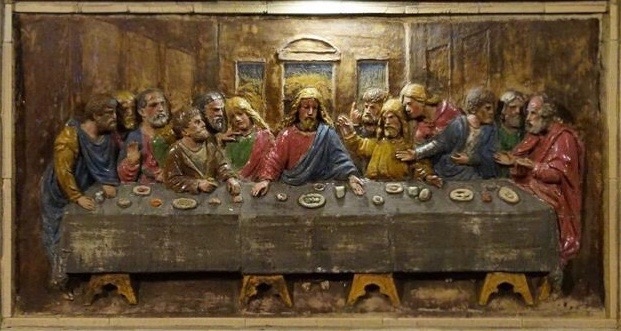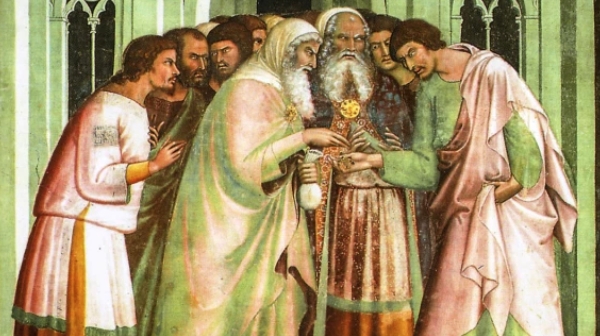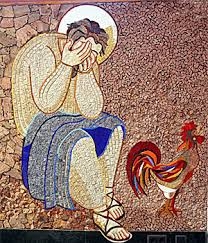These reflections are a result of more than 40 years of ministry as a Roman Catholic priest. Most of these years I spent in the Diocese of Charlotte which covers Western North Carolina. Now I am retired, and live in Medellín, Colombia where I continue to serve as a priest in the Archdiocese of Medellín.

I received from the Lord what I also handed on to you, that the Lord Jesus, on the night he was handed over, took bread, and, after he had given thanks, broke it and said, “This is my body that is for you. Do this in remembrance of me.” In the same way also the cup, after supper, saying, “This cup is the new covenant in my blood. Do this, as often as you drink it, in remembrance of me.” For as often as you eat this bread and drink the cup, you proclaim the death of the Lord until he comes. (1 Cor 11:23-26)
https://bible.usccb.org/bible/readings/041422-supper.cfm
Today we begin the Paschal Triduum with the evening Mass of the Lord's Supper. The oldest account of the Lord’s Supper is not from the gospels, but rather from Paul’s First Letter to the Corinthians. And as the Lord asks, we still take bread and wine and celebrate the meal he left us. We still remember how he loved us to the end. And we proclaim his death and resurrection until he comes again.

One of the Twelve, who was called Judas Iscariot, went to the chief priests and said, “What are you willing to give me if I hand him over to you?” They paid him thirty pieces of silver, and from that time on he looked for an opportunity to hand him over. (Mt 26:14-25)
https://bible.usccb.org/bible/readings/041322.cfm
The sadness of the betrayal by one of the Twelve touches the heart. Yet, the Lord knows all that we are capable of and still loves us without limits. We pray for all who have been betrayed, especially for the people of Ukraine.

Reclining at table with his disciples, Jesus was deeply troubled and testified, “Amen, amen, I say to you, one of you will betray me.” (Jn 13:21-33, 36-38)
https://bible.usccb.org/bible/readings/041222.cfm
Probably the most disturbing words that Jesus ever speaks to the Twelve . . . “one of you will betray me” . . . to the everlasting shame of church leadership in every age. Peter doesn’t fare any better. To Peter’s declaration that he would give his life for Jesus, the Lord responds: “Amen, amen, I say to you, the cock will not crow before you deny me three times.” We take hope in God’s words to the Servant through the prophet Isaiah: “I will make you a light to the nations, that my salvation may reach to the ends of the earth.” We continue to pray for the Ukrainian people.

The large crowd of the Jews found out that he was there and came, not only because of him, but also to see Lazarus, whom he had raised from the dead. And the chief priests plotted to kill Lazarus too, because many of the Jews were turning away and believing in Jesus because of him. (Jn 12:1-11)
https://bible.usccb.org/bible/readings/041122.cfm
The plot to kill Lazarus surprises us at times. Perhaps we need to remember how important to Jesus is the home in Bethany, the home of Mary, Martha and Lazarus. In this Holy Week, the Lord invites us all to be in his presence and to be his Beloved Disciple. We pray for Ukraine.

Then the other criminal hanging there said, “Jesus, remember me when you come into your kingdom.” He replied to him, “Amen, I say to you, today you will be with me in Paradise.” (Lk 22:14-23:56)
https://bible.usccb.org/bible/readings/041022.cfm
There is a marvelous film called, Of Gods and Men (2010) which tells the story of the Trappist monks who were martyred in Algeria in 1996. The abbot writes a thank-you letter to his family and in it he addresses the terrorist who would murder him: “Yes, to you as well I address this thank you. May we meet again, happy thieves in Paradise, if it pleases God the Father of us both. Amen. Insha'Allah.”



